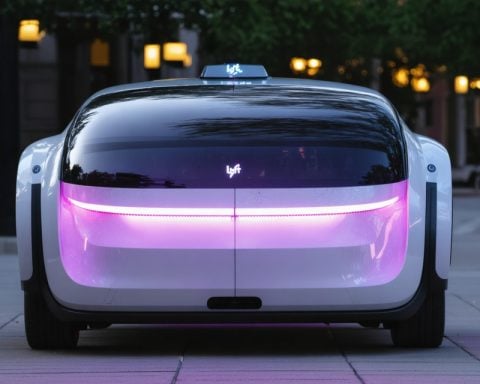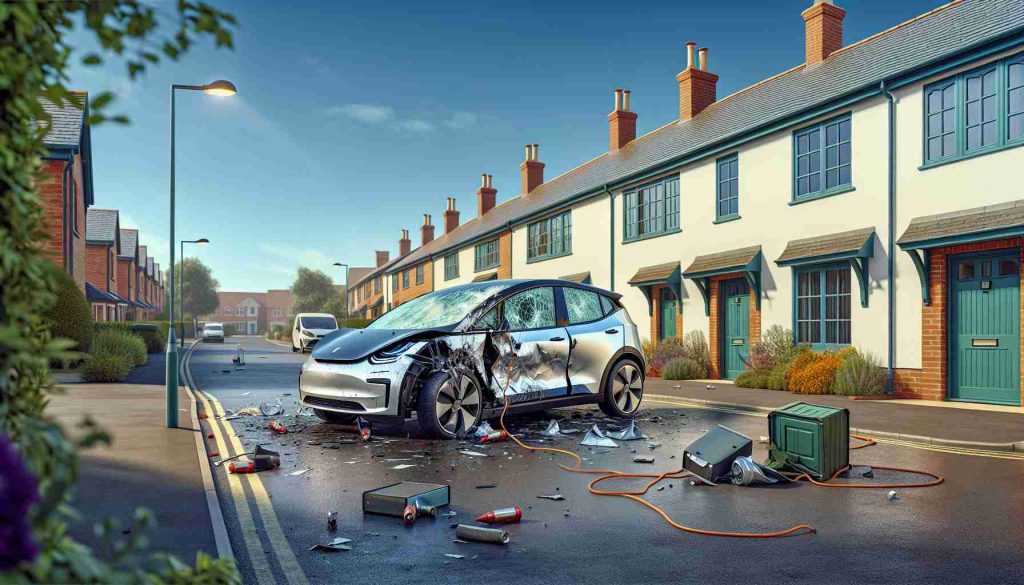The VW Group, emerging from the shadow of the infamous Dieselgate scandal, faces significant challenges as new emissions regulations loom. By 2025, the European Union will tighten CO2 limits by about 15% from 2021 figures, imposing a hefty penalty of €95 ($98) for every gram of CO2 over the set threshold per vehicle sold. For a giant like VW, such penalties can lead to astronomical expenses.
Volkswagen’s Group Treasury and Investor Relations head has warned analysts that the company anticipates a staggering fine of around €1.5 billion ($1.56 billion) due to emissions compliance failures this year. While this amount pales compared to the €31.3 billion ($32.7 billion) fallout from Dieselgate, it still represents a significant burden.
To mitigate these costs, the VW Group, which includes brands like Audi and Porsche, must focus on ramping up sales of electric vehicles (EVs) and plug-in hybrids. Another strategy being considered by competitors like Stellantis is to cut back on traditional gasoline and diesel vehicle production entirely.
Automakers are also exploring partnerships to meet the EU’s stringent emissions guidelines. A coalition of brands, including Ford and Subaru, is joining forces with Tesla to pool emissions credits, which may ultimately prove cheaper than facing fines. As electric vehicle sales continue to fluctuate, the road ahead is fraught with financial challenges, with stricter rules set to reshape the automotive landscape by 2035.
The Broader Implications of Emissions Regulations on the Automotive Industry
As the VW Group grapples with stringent emissions regulations, the implications extend well beyond the company’s balance sheets to society, culture, and the global economy. The pressure to comply with these regulations represents a pivotal shift in the automotive industry, prompting a broader cultural transformation toward sustainability. Consumers are increasingly favoring eco-friendly vehicles, leading to a surge in demand for electric vehicles (EVs) and driving automakers to innovate rapidly. This shift not only reflects changing consumer preferences but is also reshaping public attitudes toward environmental responsibility.
In the larger context, these emission regulations could significantly impact the global economy. A rapid transition to EVs may catalyze job creation in new sectors, such as battery manufacturing and charging infrastructure. However, the evolution also poses risks of job losses in traditional automotive sectors, highlighting an urgent need for workforce retraining programs.
Furthermore, the environmental consequences of these regulations are profound. Stricter emissions standards could play a crucial role in reducing greenhouse gas emissions, contributing significantly to global climate goals. The urgency of this transition is underscored by the 2015 Paris Agreement, which calls for a reduction in emissions to limit global warming to 1.5 degrees Celsius.
Looking ahead, the automotive landscape is set for transformative changes, with potential trends including enhanced collaborations across brands, increased focus on circular economy models, and the anticipated rise of autonomous electric vehicles, further solidifying the automotive industry’s trajectory toward sustainability. As the regulatory climate evolves, the long-term significance of these changes will resonate within and across multiple sectors, redefining modern transportation’s role within society.
VW Group’s Strategies to Overcome Emissions Challenges in the New Automotive Era
The Volkswagen Group, emerging from the shadows of the Dieselgate scandal, finds itself at a pivotal crossroads as new emissions regulations loom on the horizon. With the European Union set to tighten CO2 limits by about 15% from the 2021 figures by 2025, the stakes have never been higher. Automakers that fail to comply will face stringent penalties, with the penalty amounting to €95 ($98) per gram of CO2 over the set threshold for each vehicle sold. This could result in astronomical expenses for a giant like VW.
This upcoming regulation is particularly concerning as the company anticipates a staggering fine of approximately €1.5 billion ($1.56 billion) this year, as warned by the head of VW Group Treasury and Investor Relations. While this amount is dwarfed by the €31.3 billion ($32.7 billion) impact from Dieselgate, it still poses a significant financial burden, necessitating immediate action.
Pros and Cons of VW’s Current Approach
Pros:
– Increased Focus on EVs: VW is ramping up production of electric vehicles (EVs) and plug-in hybrids, aligning with global trends towards sustainability.
– Potential Collaborations: The exploration of partnerships with other brands could lead to cost savings and shared resources, particularly in emissions credits trading.
Cons:
– Heavy Fines: The anticipated fines for emissions non-compliance could substantially impact VW’s financial health.
– Market Competition: Other automakers, like Stellantis, are considering cutting traditional gasoline vehicle production, increasing competition in the EV sector.
Innovations in Electric Vehicle Production
To navigate these challenges, the VW Group is investing heavily in innovative technologies for electric vehicle production. This includes advancements in battery technology, which aim to enhance the performance and reduce the costs of EVs. Furthermore, VW is exploring solid-state batteries, which promise faster charging times and increased energy density, making electric vehicles more appealing to consumers.
Market Analysis and Future Predictions
As the automotive landscape transforms due to stricter emissions rules, a shift towards electrification is evident. Analysts predict that by 2035, the majority of vehicle sales will be dominated by hybrids and electrics. This trend could lead to an overall reduction in traditional vehicle production, making the transition crucial for current automakers. Volkswagen must aggressively innovate and adapt to maintain its position in a rapidly changing market.
Compatibility and Sustainability Efforts
VW aims to ensure that its electric models are compatible with existing infrastructure, such as widespread charging stations, which are a necessary component of the electric vehicle ecosystem. Furthermore, the group is working towards sustainability not only in vehicle production but also in sourcing raw materials responsibly to limit environmental impact.
Conclusion
As the VW Group faces an uncertain future laden with emissions-related challenges, their strategies involving increased EV production, potential collaborations, and innovative technological advancements will be crucial. The journey to compliance includes navigating heavy fines, intense market competition, and a commitment to sustainability. The automotive industry is poised for significant changes, and Volkswagen’s response will be a key storyline in the months and years ahead.
For more insights into automotive trends and emissions regulations, visit Volkswagen AG.















